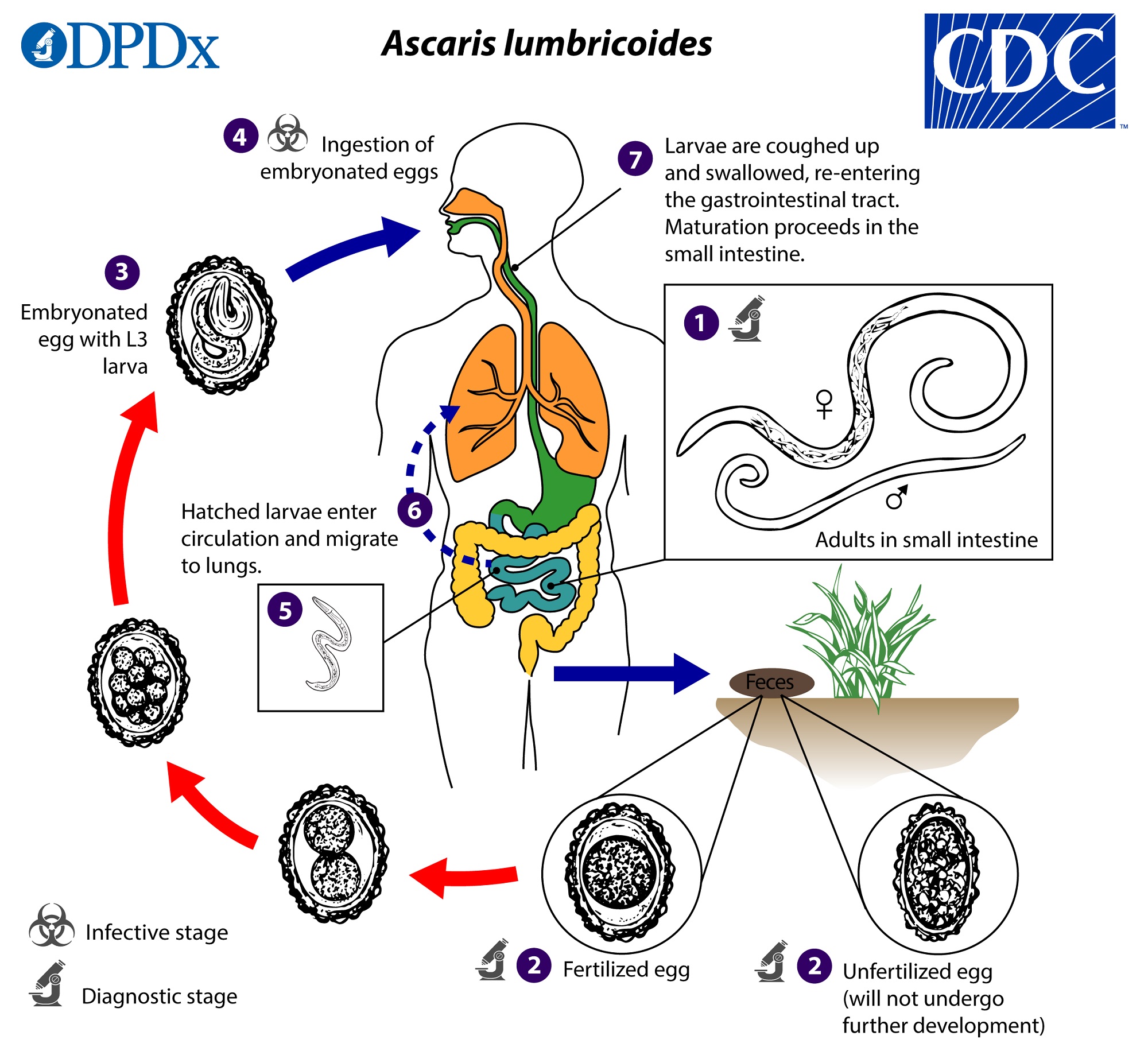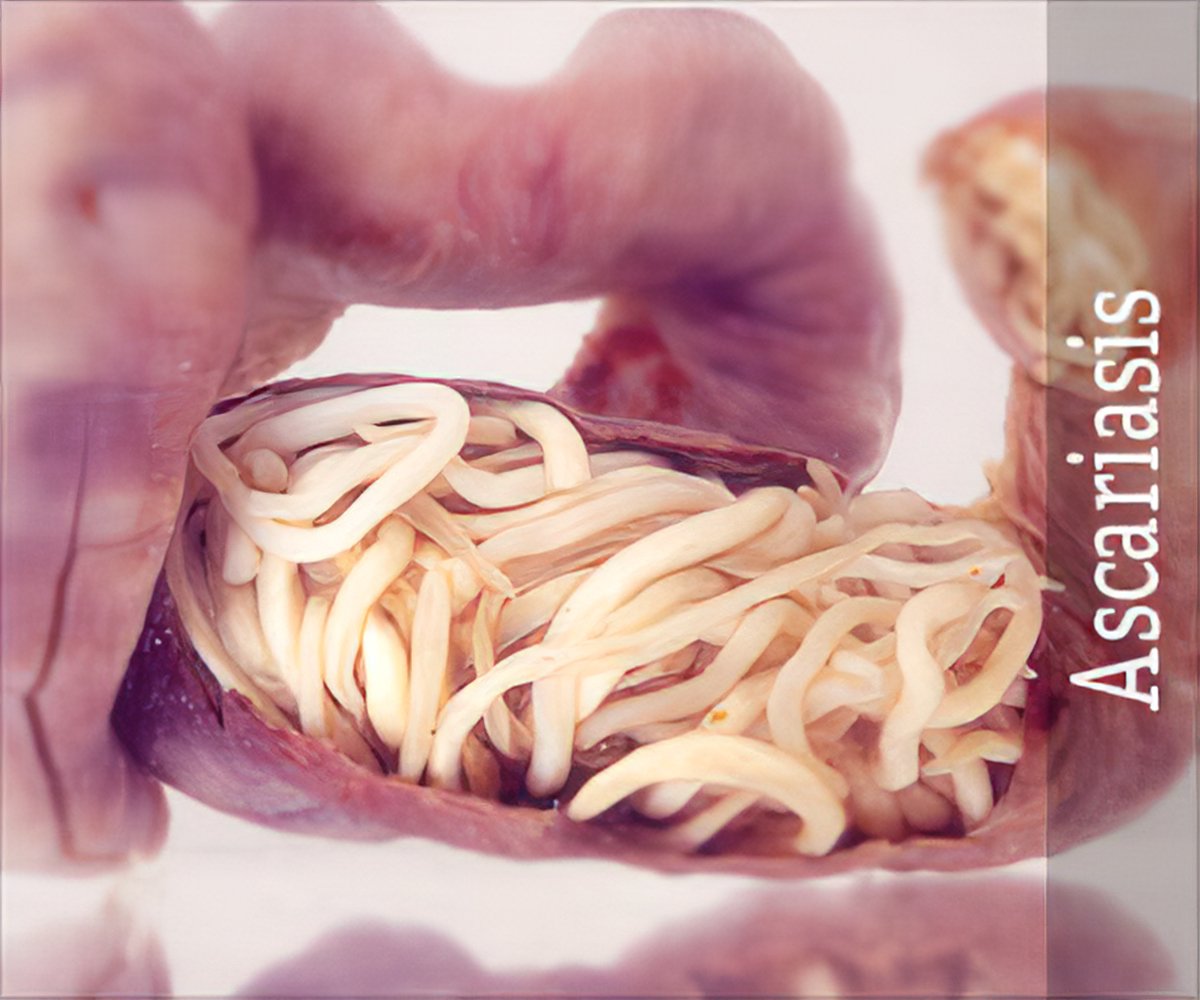Introduction
It is a helminthic infection of the small intestine.
The infection can occur at all ages, but it is more commonly affects the ages of 5-9 years. The incidence is high in poor rural population and determined by local habits in the disposal of faeces.
Causative agent: Ascaris lumbricoides (large intestinal roundworm).
Mode of transmission: Man is the reservoir of infection which is spread by faecal pollution of the soil. The eggs are swallowed as a result of ingestion of polluted soil. Under Optimum conditions, eggs can remain viable in the soil for about a year.
 |
| Photo by CDC |
Transmission
The infective eggs are ingested in food or from contaminated hands
Human Host
- The larvae hatch and invade the intestinal mucosa.
- It passes through systemic circulation to the lungs where it further matures within 10 to 14 days.
- It then penetrates the alveolar ascending the bronchus to the trachea.
- Getting swallowed, it becomes adult worms in small intestines.
- The eggs produced are passed in faeces.
Environment
- Eggs becomes infected in soil in about 30 to 40 days.
- Infected eggs contaminate the environment.
Signs and Symptoms
The disease is often symptom-less and the infection is discovered during other investigations. Only noticed during routine stool examination. In severe cases, the patient present;
- Fever.
- Intermittent abdominal pain.
- Anorexia.
- Restlessness in children.
- Abdominal distention.
- Cough caused by irritation.
- Intestinal obstruction.
- Physical presence of the worm in stool.
Management
Drugs used include;
- Mebendazole,
- Piperazine citrate,
- Levamisole
- Iron supplementation.
Prevention and Control
- Treating all infected persons.
- Provision of adequate toilet facilities e.g. latrines.
- Wash hands with soap and running water before eating.
- Avoid eating uncooked vegetables, green salads and fruits which may be contaminated with faecal matter.
- Avoiding the use of untreated human faeces as fertilizers.
- De-worming every three months.
Read Also








0 Comments